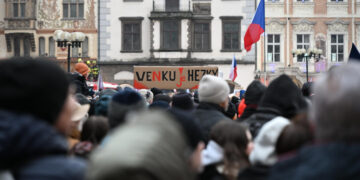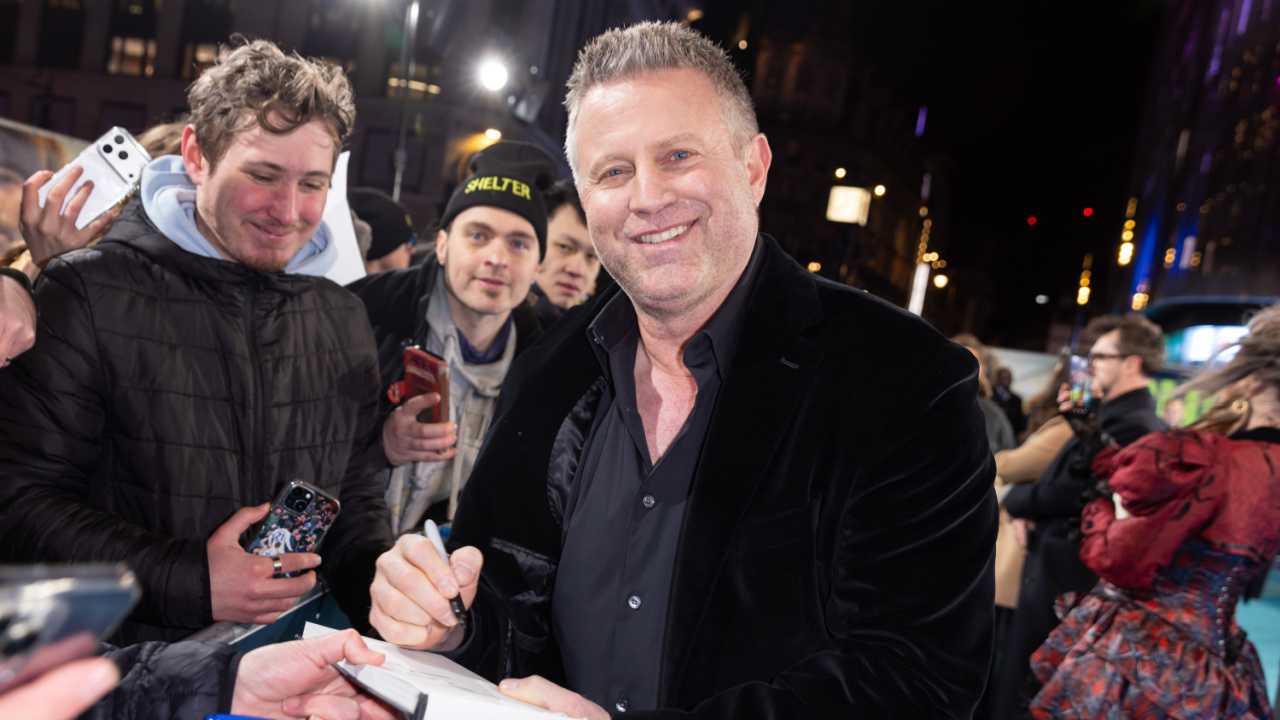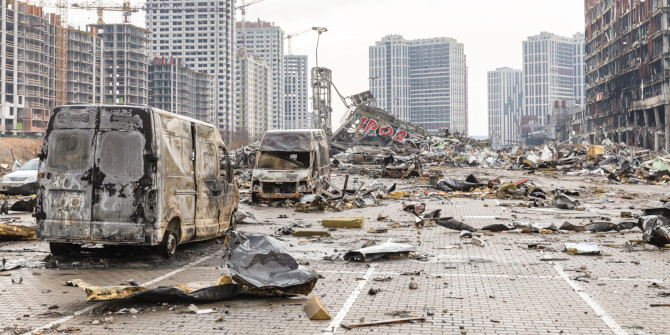Millions of people have fled Ukraine since Russia’s full-scale invasion in 2022. Maria Koinova argues those who have left and the existing Ukrainian diaspora must be closely involved in Ukraine’s recovery process.
In a landmark statement on 22 January, Ukraine’s President Volodymyr Zelensky addressed the Ukrainian diaspora. He expressed gratitude for all their efforts to support Ukraine since Russia’s 2022 invasion and proposed multiple citizenship for the diaspora and foreign fighters in Ukraine.
Zelensky is now taking steps to change the Ukrainian constitution to introduce dual citizenship, which is much desired in diaspora circles. He also decreed an action plan to preserve the national identity of Ukrainians living in Russia. Such high-profile attention to the Ukrainian diaspora should prompt timely reflection about its role as an important yet still largely neglected actor for Ukraine’s reconstruction.
The Ukrainian diaspora
Ukraine had a large diaspora, even before the start of the ongoing war, estimated at 20 million. In the western hemisphere, an old and well-established diaspora in Canada and the US has gained significant status and influence, financial power, expertise and connections since the Second World War.
The diaspora grew in both size and influence following the February 2022 invasion, with an estimated six million people leaving the country and currently over 4.2 million Ukrainians benefitting from the EU’s temporary protection mechanism. This recent wave, dominated by women and children, is already two years old. Concerns for survival have dominated their lives, yet most refugees have remained deeply connected to Ukraine.
Some have found jobs and academic opportunities abroad and started imagining a longer stay in Europe, but they have also continued working online for Ukrainian enterprises, volunteered or followed their children’s online schoolwork. Many have not found jobs corresponding to their earlier higher qualifications and some have even returned to Ukraine. Others have travelled back and forth from Europe to see family and check on property. Many still hope to return as soon as they can.
Such a multitude of refugee and diaspora experiences prompts us to think about how to accommodate refugees in host-countries and manage their future return. Yet it should also encourage us to recognise there is a vivid transnational connection between the diaspora (both old and new) and Ukraine that persists, changes and transforms itself while remaining durable. This could be of immense value for the country’s recovery.
Engaging the diaspora
How can the Ukrainian diaspora be engaged systematically in policy-processes for the country’s recovery and development? This question has preoccupied me for more than a year in the context of expert workshops and a collaboration with OSCE-ODIHR in Warsaw for the publication of their comprehensive report in January 2024.
When facing post-conflict reconstruction, a diaspora’s financial power is usually the first to tap into. Ukraine was the largest recipient of financial remittances in Europe and Asia before the full-scale invasion, with USD 14 billion in 2021 alone – around 7% of Ukraine’s GDP or 2.1 times the size of foreign direct investment in that year. Even if remittances dropped right after Russia’s invasion because of the large-scale displacement of people, they are globally the most stable financial flows, compared to more volatile foreign direct investment and official development aid (ODA). This is because, unlike other financial flows, remittances are based on other logics than gaining profit, such as identity, loyalty and care for families at home.
There has been a steady interest in stimulating diaspora direct investments (DDI) even prior to Russia’s full-scale invasion. Wealthy Ukrainian entrepreneurs and company managers have been expected to more eagerly steer investments towards Ukraine, especially against the backdrop of the country’s long-standing obstacles to attracting foreign direct investment. While billions of US dollars have been flowing in military, humanitarian and economic assistance during the war, and billions more are envisaged to flow in during the country’s recovery, the Ukrainian diaspora has rarely been considered as a major actor in such grand schemes and policy calculations.
Conflict-generated diasporas have been wary of engaging with financial investments in home-countries because of corruption, and the Ukrainian diaspora is no exception. As diaspora representatives argued during an expert workshop, the Ukrainian diaspora has scarce knowledge about the actual state of affairs in Ukraine, while many act simply on their perceptions.
In line with its EU aspirations, Ukraine has made some partial progress in addressing corruption, but this remains almost unknown in diaspora circles. Hence, how Ukraine makes steps towards addressing corruption needs to be clearly communicated to the diaspora, not only to international organisations. A key task for the diaspora is also to bring forward best cases where it has contributed to the country’s development without engaging with corruption.
The role of the diaspora goes well beyond financial remittances and investments, reaching into social and political concerns. Accountability for war crimes and injustices is a major preoccupation of the Ukrainian diaspora at present. Justice-related projects have already started to engage the diaspora to complement activities by state authorities and international courts to prosecute war crimes.
Some established diaspora organisations have been associated with the Ukrainian World Congress that promotes and coordinates the interests of millions of Ukrainians in 61 countries. Yet, recent refugees have been unsure whether to put effort into registering migrant organisations in their new host-countries or simply to wait abroad to go back to Ukraine.
A lot of activism, especially in Europe, has been embedded in the fluid networks of recent refugees that have surpassed in volume officially registered Ukrainian organisations. Such activism is still not well professionalised and many people work around the clock. Hence, it is necessary to support the building and sustaining of further diaspora institutions.
The way forward
Alongside the potential within the Ukrainian diaspora, there are also vulnerabilities. The rights of women, minorities such as Roma and the LGBTQ+ community need to be systematically considered. Ukrainian refugees have been exposed to a lot of diverse populations in their new exchanges in western societies. They could carry such experiences to Ukraine upon their return, yet on issues of diversity, more concrete measures are needed.
The reception of refugee women during the recent wave may have been easier in Europe precisely because – rightly or wrongly – women have been seen as more vulnerable than other refugee populations containing more men. Yet, how to empower Ukrainian diaspora women to leverage their knowledge, networks and the capacities they have gained during their refugee experience is a huge question that merits special attention for the reconstruction of Ukraine.
Many diaspora and refugee women have taken leadership positions after 2022, yet their leadership cannot be automatically guaranteed when the war is over. History is rife with examples of women who were fighters, sustained industries and households during wars, but who were pushed away from leadership positions at the end of these wars.
There was also problematic treatment of Roma refugees when they were leaving Ukraine and when they went to neighbouring countries. Some local Roma rights organisations have worked to promote their rights, but Roma refugees have remained largely separated from ethnic Ukrainians abroad. LGBTQ+ Ukrainian refugees also had hopes that they would find more understanding in Europe, but they have faced unfavourable treatment too. These concerns would need to be addressed for more inclusion in diaspora circles.
The war in Ukraine has been fought in the name of sovereignty and democracy. Many of the above concerns will be important for the democratisation requirements associated with Ukraine’s EU membership. It is important to recognise and engage the Ukrainian diaspora as a productive actor in such processes, formally and informally, and incorporate the multitude of experiences of both recent refugees and the long-term diaspora.
Note: This article gives the views of the author, not the position of EUROPP – European Politics and Policy or the London School of Economics. Featured image credit: Drop of Light / Shutterstock.com









































Discussion about this post